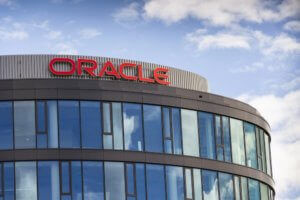Quick look
- European stocks rise, with Germany’s DAX reaching a record high amid slowing inflation.
- U.S. inflation trends lower, boosting hopes for a Federal Reserve rate cut.
- CRH and other companies outperform earnings expectations, driving sector-specific gains.
- Amadeus faces competition in acquiring Shift4 Payments, impacting stock prices.
- Despite a weak German economy, the DAX’s international exposure fuels investor optimism.
European markets displayed resilience as the STOXX 600, and Germany’s stock index (DAX) hit record highs, fueled by positive earnings reports and signs of slowing inflation. The German DAX, in particular, soared to an all-time high, propelled by cheaper energy prices that reduced inflation to 2.7% in February.
This trend can also be seen in France and Spain, suggesting a dip in euro zone inflation, potentially easing European Central Bank (ECB) policy. Conversely, the U.S. reported its smallest annual price increase in three years, keeping the door open for a mid-year Federal Reserve rate cut. These developments reflect a cautious optimism in financial markets, balancing economic recovery and the challenges of achieving a smooth monetary policy normalisation.
Corporate Earnings Highlight
Corporate earnings have significantly shaped market sentiment, with companies like CRH, NN Group, Subsea 7, Moncler, and Universal Music Group reporting strong results. CRH’s profit growth expectation after surpassing its 2023 targets exemplifies the sector’s robust performance.
Similarly, significant gains by NN Group and others underscore the impact of exceeding financial forecasts on investor confidence. However, not all news was positive; Amadeus and Grifols faced setbacks, as Grifols shares have decreased by 35% on the stock market. This turndown highlights the diverse outcomes within the current economic landscape.
The German Economic Paradox
Despite Germany’s economic challenges, including a revised growth forecast and potential technical recession, the DAX’s performance remains strong. This paradox can be attributed to the global exposure of DAX-listed companies, which are less affected by domestic economic conditions.
High inflation and production costs have troubled small and medium-sized enterprises (SMEs) in Germany, yet the DAX benefits from its international reach and the health of overseas markets. As inflation cools and expectations of lower interest rates grow, investors are optimistic about the potential for increased corporate profits, further disconnecting stock market performance from the domestic economic situation.
This global perspective on financial markets and corporate earnings highlights the complex interplay between economic indicators, corporate performance, and investor sentiment. Despite underlying economic challenges, particularly in Germany, the broader market trends and corporate earnings provide a more optimistic outlook.











